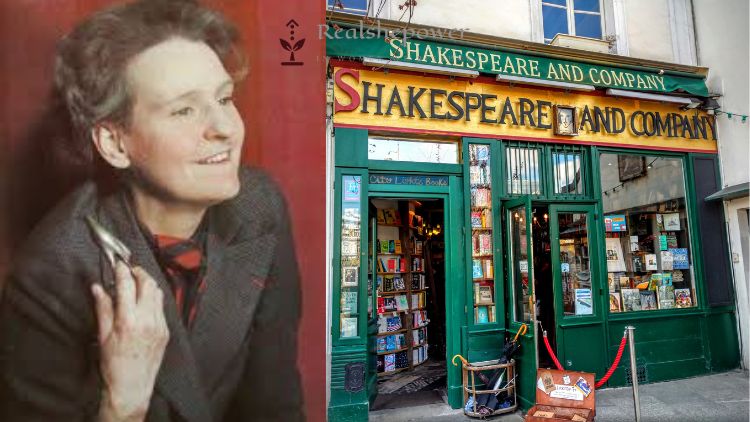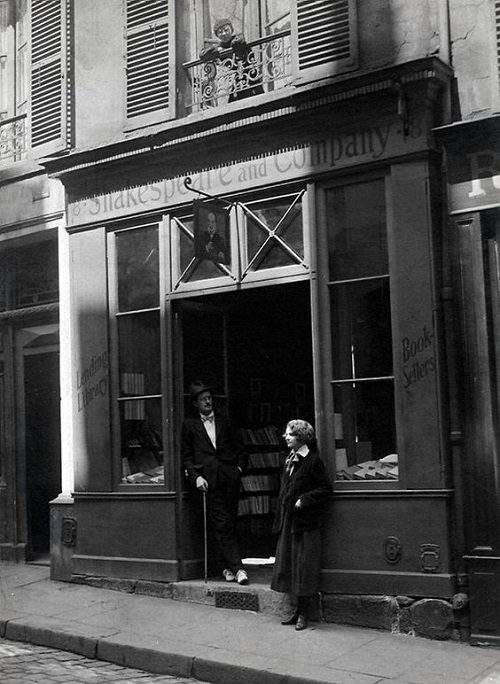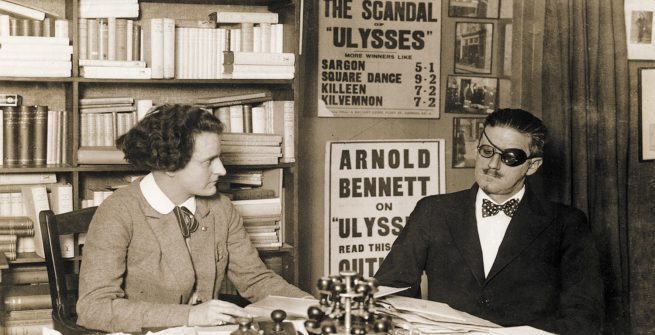The Extraordinary Life Of Sylvia Beach: The Owner Of The Famous Parisian Bookstore Shakespeare And Company


Sylvia Beach was an American expatriate who played a major role in the development of modernism in literature. She is best known as the owner of the Parisian bookstore Shakespeare and Company, which served as a gathering place for many of the era’s most prominent writers. In addition to her work as a bookseller, Beach was also a publisher, translator, and literary agent. She published the first translation of James Joyce’s Ulysses into English and helped launch the career of Ernest Hemingway. Beach’s life was shaped by her love of literature and her commitment to championing the work of avant-garde writers.
Sylvia Beach was born in Baltimore, Maryland, on March 14, 1887. Her father, Walter Rundle Beach, was a Presbyterian minister, and her mother, Grace Williamson Beach, was a schoolteacher. The family lived in several different communities during Beach’s childhood as her father was assigned to different churches. When Beach was eleven years old, the family settled in Princeton, New Jersey. It was there that she developed a love of books and reading.
After graduating from high school, Beach enrolled at Vassar College intending to study English literature. However, Beach found the atmosphere at Vassar stifling and her parents soon withdrew her. She then spent a year in France before returning to the United States to attend Bryn Mawr College, where she studied English and French.
While at Bryn Mawr, Beach became good friends with Edith Wharton and Margaret Canby. It was through Canby that Beach met Sherwood Anderson, who would become a close friend and mentor. Beach also met Adrienne Monnier, a French bookseller who would become her lifelong friend and business partner. After graduating from Bryn Mawr in 1917, Beach decided to move to Paris permanently.

In Paris, Beach and Monnier opened a bookstore called Shakespeare and Company. The store quickly became a popular gathering place for writers, including Ernest Hemingway, Gertrude Stein, James Joyce, and Ford Madox Ford.
Beach’s literary goals were beyond just becoming an author. She also wanted to support other people’s voices as they developed and flourished because her store doubled as a lending library where Hemingway used to read when he lacked the funds to buy books. Beach stated in her autobiography, which she titled after her bookstore, “I wanted to help the French writers I admired so much to become more widely known in my country,”1 and she made sure that this also applied the other way around.
Beach had created a small community of her own. She connected writers with editors looking for content for the city’s small expat periodicals, which were mostly distributed by her bookstore: Shakespeare and Company. The Transatlantic Review, The New Review, This Quarter, Exile, Change, Gargoyle, and Tambour, as well as periodicals from other cities like Poetry, The Little Review, and The Dial, were all available in the bookstore.
Beach also established herself as an invaluable resource for the numerous tiny publishing companies who battled to succeed on the well-intentioned economic strategy of publishing authors who lived on the periphery and couldn’t guarantee commercial success to larger houses. Beach provided them with guidance, helped them locate manuscripts, let them use her address, and of course, sold their books. The Making of Americans and Hemingway’s first book were both published by Robert McAlmon, who operated his company out of the bookshop.
Not to forget her unrelenting support to writers. Joyce, Hemingway, George Antheil, and other authors used the bookshop’s street number, No. 12 rue de l’Odéon, as their mailing address; in fact, there were so many that Bryher gave out a pigeonholed case for organising mail. According to Fitch, Beach encouraged writers, helped them find lodging, suggested they read, and made connections with translators and customers (Fitch, 17)2.
Hemingway referred to himself as the store’s “top customer” and frequented there regularly to peruse new magazines and trade rumours. In return, Beach treated Hemingway like royalty, gave him a loan, and promoted his writing to the man who eventually became his publisher in England. James Joyce called the bookstore his second home for a long time.
One wonders what was so enchanting about Sylvia Beach? Cyril Connolly wrote in 1960 that “there really is something birdlike about her—vivacity, energy, simplicity, unsentimentality—a bird from the Greek Anthology.” 3
Beach and Joyce first spoke in 1920 at a party when they discussed Joyce’s struggles with the seven-year-old novel Ulysses. Beach later reflected, “Joyce’s demeanour was so very basic that, overpowered as I was in the presence of the greatest writer of my day, I somehow felt at peace with him. He seemed amused by my name and the name of my bookstore” (SC, 37) 1. The day after, he went to see her.
Joyce informed Beach, “My book will never be published now. She pondered for a moment before asking, “Would you allow Shakespeare and Company the honour of bringing out your Ulysses?” She said, “He received my award promptly and happily.” I believed that it was reckless of him to entrust his fantastic Ulysses to such a silly tiny publication. However, he appeared happy, and I was too (SC, 47) 1.

In 1922, Joyce’s Ulysses was published even though it was banned in United States with the help of Beach’s bookstore.
In 1925, Beach published Joyce’s second novel, A Portrait of the Artist as a Young Man. The novel was once again banned in the United States (due to its frank discussion of sexuality), but found a wide audience in Europe.
She claimed that following the publication of Ulysses, “authors rushed to Shakespeare and Company on the impression that I would focus mostly on eroticism” (SC, 91)1. They were informed by her that only Joyce would be published. Because of the imprint’s emphasis on the arts and its low to nonexistent margins, it was difficult to accept another author.
When World War II broke out, Beach closed her bookstore and spent the war years working as a Red Cross nurse. After the war, she reopened her store and continued to promote Joyce’s work, as well as the work of other avant-garde writers.
Beach died in 1962 in her beloved city Paris, but her legacy lives on.
References:
1. Sylvia Beach, Shakespeare and Company (Lincoln: University of Nebraska Press, 1991): 13. Hereafter cited as SC, with page number.
2. Noel Riley Fitch, Sylvia Beach and the Lost Generation (New York: W.W. Norton, 1985): 30. Hereafter cited as Fitch, with page number.
3. Cyril Connolly, “A Rendezvous for Writers,” Sunday Times 12 June 1960. Reprinted in Mercure de France CCCXLIX (août-septembre, 1963): 163.

The ersatz store you have pictured and linked – it’s a later incarnation. Beach had nothing to do with it.